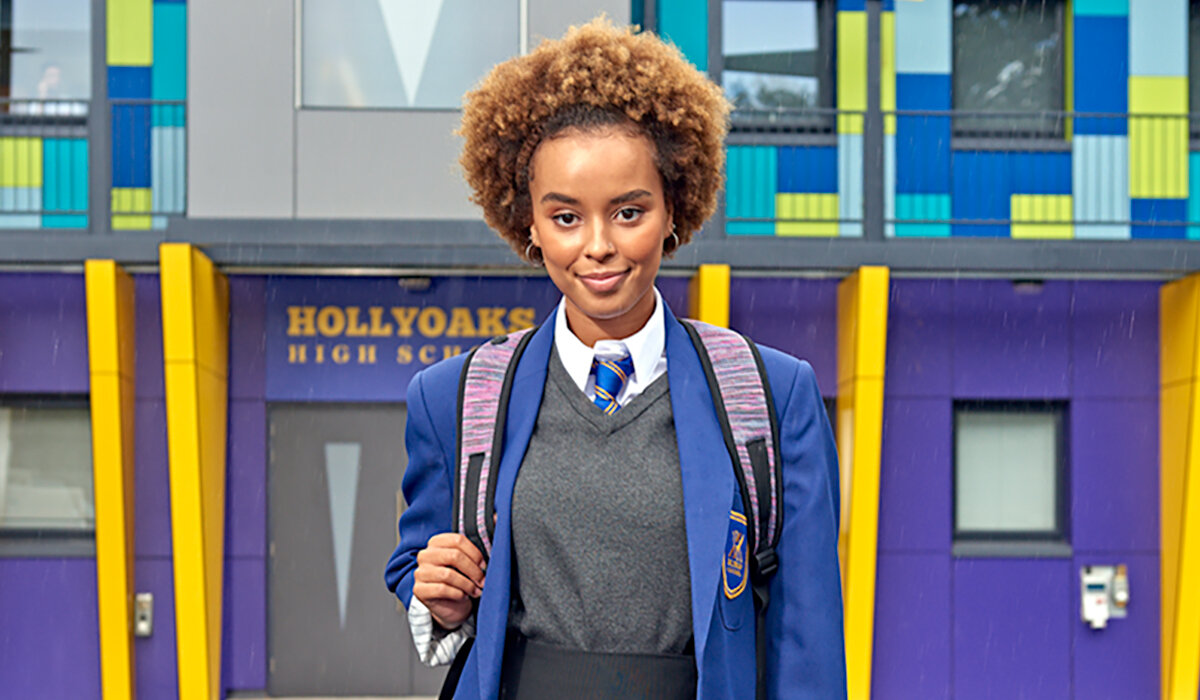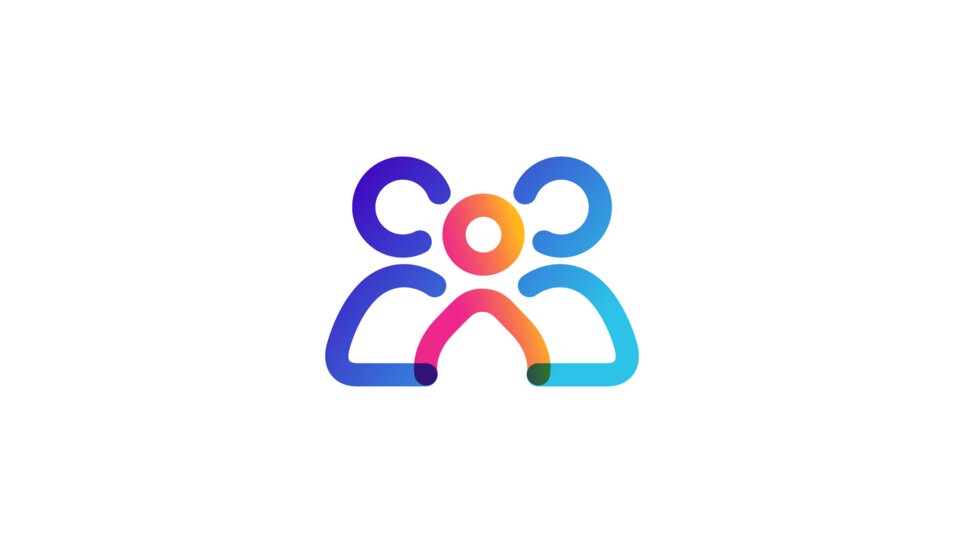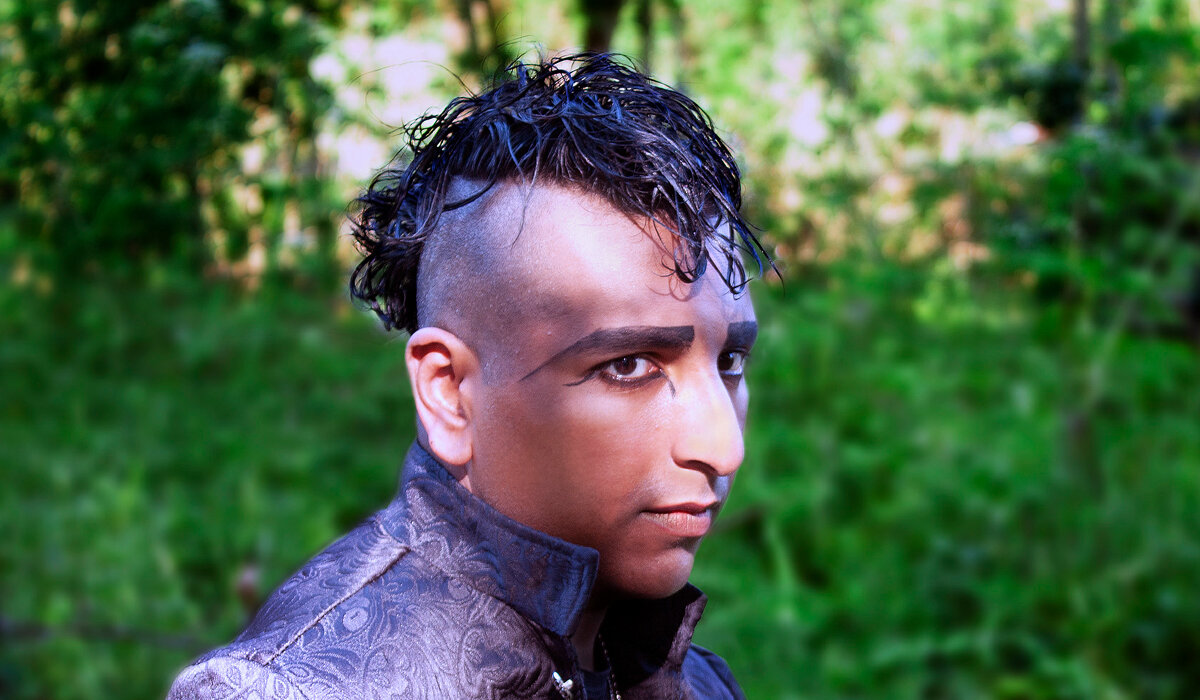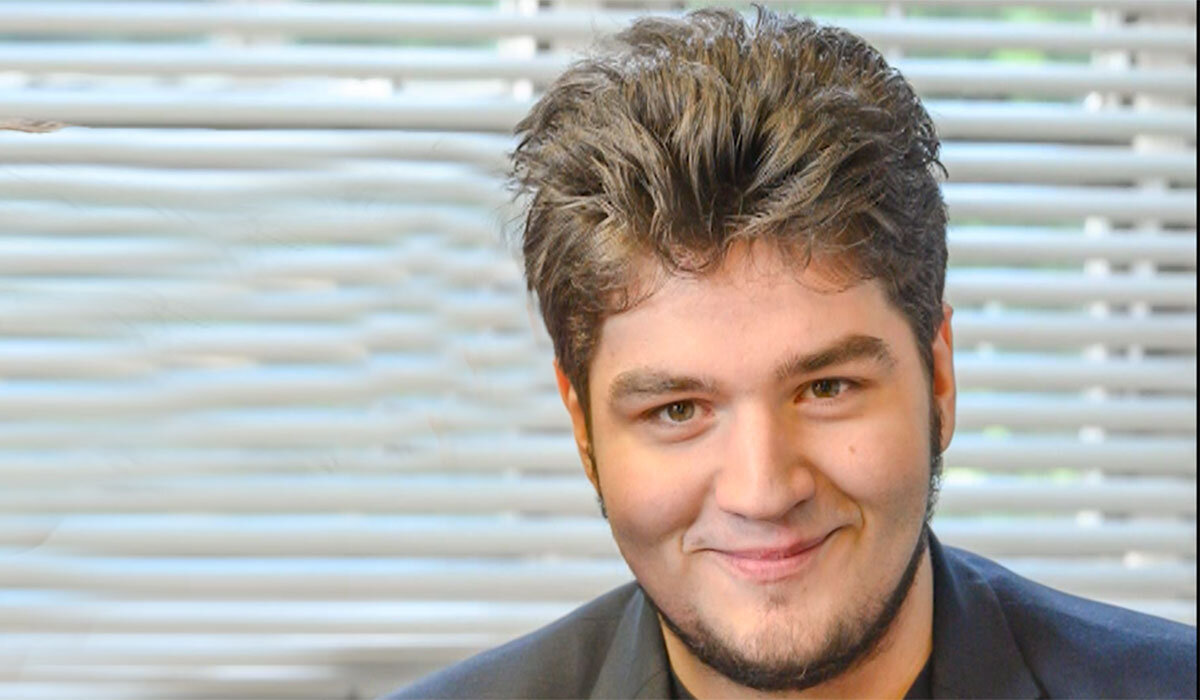
"As a child I didn't know who I was as I didn't see people like me."
Tylan Grant
- on representations of autistic people in the media
Stories from the Spectrum: Talia Grant
Meet Talia Grant, autistic actor and an ambassador for our charity. You may recognise Talia from Hollyoaks, where they play autistic teenager Brooke Hathaway - making headlines as the first openly autistic actor in a mainstream TV soap.
Talia chatted to us about what being autistic means to them, being a black autistic person and a member of the queer community, their favourite YouTube videos, and working on the Don't Filter Feelings podcast - a podcast created by the Hollyoaks team, where guests share their stories and discuss topics that are meaningful to them.
When were you diagnosed as being autistic?
I was diagnosed when I was seven years old.
What is being autistic like for you?
I guess it’s just my everyday living experience, it’s the way that I perceive reality and the world around me – I am autistic. The things that would correspond to that would be loud noises and I see things in great detail and it means that I’m more in tune with my surroundings.
Being autistic for me is not only from the sensory side like smells, noises and sight – because my sight is really good too – it also includes the way that I communicate everyday.
For instance, when I’m talking to someone and I say, “Hello, how are you?” if they walk away, I’ll repeat it to myself for like two minutes to see if I said it correctly.
Those two things together can be tricky – for instance, if I’m trying to have a conversation and I’m distracted by smells. I have special interests and I’m deeply fascinated by things. I have a deep fascination for life and without my autism I don’t know if I would have that - because when I like something I really like it.
How long have you been acting for and is it something you have always wanted to do?
I go to a Saturday drama school, so I’ve been doing that since I was five. I’ve always wanted to act, it’s always been my dream. I think that as a child I used to watch a lot of Robin Williams films and I was just so inspired by him and I looked up to him so much, and also seeing my sister, Olive, act.
What do you enjoy most about acting?
I think it would have to be seeing things from different perspectives and getting an insight into a life that I don’t live. Also, understanding the character that you’re playing and how humans interact. Especially as an autistic person, viewing people talk and communicate is nice to see when it’s projected on paper, then screen. I love just being able to see what it’s like to play someone else. It’s helpful and nice to take something from the written paper and be able to perform and portray that.
Your character, Brooke, in Hollyoaks is autistic. Do you use your experience of being on the spectrum when playing her, and how so?
Yeah, I definitely use my experience of being on the spectrum. Brooke and I both have very similar experiences day to day with things that you’ve probably seen on screen. If you watched my first opening scene in Hollyoaks it’s the experiences of life going on around me - the loud noises, the chatter, the cars, the exhaust pipes – it’s something that I actually go through every day. It’s something that I do experience and other people experience.
Brooke is not just an autistic girl, she’s a girl – she’s living life, she’s not defined by it but she’s not ashamed of it. She’s living through her experience and I can relate in the way that I’m living through what I’ve experienced. I’m able to use that experience to portray her.
You've spoken before about being black and autistic. Could you explain a bit about what this means for you?
I think that identity is important, not necessarily labels, but the way that you identify as a person. I’ve come to a point where I’m really comfortable with who I am and I’m very proud to be black and autistic.
I can wake up every day and say that I’ve been through it, my ancestors have been through it, I am living and able to help others. Identity is very important because now I’m in a community where people understand each other. People are opening themselves up to learning about what I go through, not only being autistic but being black - it’s really important to represent autistic people of all backgrounds.
I’m glad to say that I’m also in the autistic queer community because we’re very close and it’s so lovely to know that you’re welcome and people are allowed to show up and be themselves. Before, I just felt quite lost, because of the things that I had experienced and the oppression that I faced. I think just standing up and showing it is so important.
Why do you think representing autistic people of all backgrounds is so important?
As a child I didn’t know who I was because I didn’t see anyone like me and now I think that there’s a community because people are showing themselves.
It’s just so important, especially for TV and film, to be able to represent people of all backgrounds. When you think of autistic you might just think of a boy like Sheldon from The Big Bang Theory, but no one really thinks ‘black, autistic girl’. People need to understand that it’s not a niche – there’s someone at home watching it and thinking, “I’m so glad that finally I’m understood and I’m seen and I’m not invisible”. I’m just glad to hopefully be a voice for people.
"As a child I didn’t know who I was because I didn’t see anyone like me and now I think that there’s a community because people are showing themselves."

What advice would you give to aspiring autistic actors?
Just keep going. When you do your best, you can never really fail because you know that you did the best you could. Know that people are out there that want to understand you and there are people that celebrate difference. There are people that want to hear you and would love to hear you. When you’re autistic, you’re nervous because you think, ‘what if they don’t understand me?’, or, ‘what if I tell them that I’m autistic and they don’t want me to work with them?’ Well then, they don’t understand and that’s on them, it’s never on you. You can only just keep going and follow your dreams and it’ll all work out.
What do you enjoy doing in your spare time?
I do so many things! I love watching movies. I like to do healing things for me and my close friends. I like spending time with my brother, using my herbs to make tea and journaling. I like going out with my boyfriend and walks in the park. I have two really cute dogs so we’re always playing and I love drawing and writing and TV. I haven’t watched a lot of TV recently though. I also like going to cafes and eating cookies! Most of the time I’m watching YouTube. I love watching True Crime videos and listening to music but I just love, love YouTube. I love all the videos, the YouTubers. I really like Ready to Glare, comedians and I watch a lot of cake recipes – I’m always on YouTube watching stuff.
You recently recorded the Don’t Filter Feelings podcast with your sister, Olive. What was that like?
I loved it so much, oh my gosh. We’ve always spoken about doing a podcast as well – my sister wants to do her own podcast soon. I think that would be really cool. We were trying not to look at each other because we would just laugh so much. It was lovely working with Lauren Layfield (the presenter) and it was lovely working with my sister. We’ve never done anything like that together before. The conversation was very important and Lauren let me really explain myself.
Olive is also an actor. Would you like to work more with her?
Absolutely, yeah. I’d love to work with my sister – that would be really cool. She’s an amazing actor.
How do you think the podcast will help to raise awareness?
I think that the podcast will be very important to people who don’t necessarily understand autism or people that have heard about it but aren’t sure what it’s really like. A lot of the time when I tell people that I’m autistic, they might not get it, so I think it’s important for those people to listen to it because we do explain.
I talk about my family and all the ways that the spectrum looks. It spreads a lot of awareness about school and growing up and the things that might be difficult that you face when you’re going through secondary school or even when you feel a bit alone mentally. I think the podcast is very important – not only my episode but the podcast in general is a very important discussion about mental health and I’m so glad that I could be a part of it.
You can listen to Talia and Olive's episode of Don't Filter Feelings below, where they chat about autism, mental health and more...
Similar stories

"We need Black history to be shared and discussed widely..."
Tylan Grant
- on why we should be discussing Black history all year round
Read more

"I know what colour or shape I'm feeling, but I often struggle to express myself with words."
Patrick Samuel
- on expressing himself through art and music
Read more

"The A Word has broadened people's minds and inspired them to find out more about autism."
Travis George Smith
- on acting in the BBC drama, 'The A Word'
Read more

The Spectrum magazine
Explore one of the UK's largest collections of autistic art, poetry, and prose. The Spectrum magazine is created by and for autistic people, and is available both online and in print.
Read the Spectrum





You are not alone
Join the community
Our online community is a place for autistic people and their families to meet like-minded people and share their experiences.
Join today